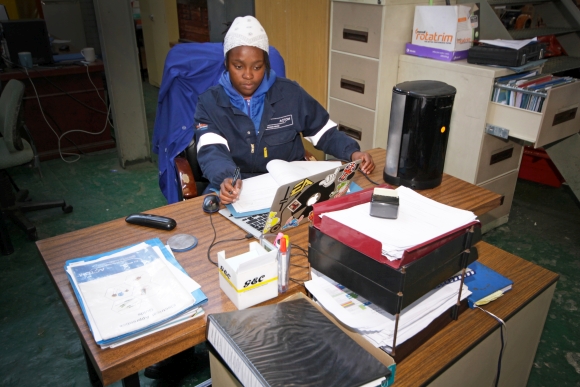The shortage of engineers in South Africa is a pressing concern with far-reaching implications for economic growth and development. Without skilled engineers, South Africa faces significant challenges in addressing its infrastructure needs, driving innovation, and competing globally.
Limited access to quality education in science, technology, engineering, and mathematics (STEM) subjects, particularly in disadvantaged communities, means many potential engineers are lost early in the pipeline. Furthermore, South African universities produce only a small number of engineering graduates each year, and many choose not to practice engineering.

The brain drain of skilled engineers emigrating to other countries has also exacerbated the shortage. Many engineers seek better opportunities abroad, leading to a loss of talent and expertise that could be driving development in South Africa.
ACTOM, a leading manufacturer and solution provider, has acknowledged this critical skills gap and, over the years, introduced a three-stage approach to address this skill shortage.
At the grassroots level, ACTOM runs mentorship programmes at secondary schools to develop an interest in STEM subjects and the engineering field in scholars. At the tertiary level, ACTOM offers bursaries to South African students in Electrical, Industrial and mechanical engineering. The final stage, introduced in 2023, addresses the concern of graduates who lack practical experience and offers work-integrated learning.
To this end, ACTOM offers a high-level skills development programme called “Engineers in Training.” Engaging with ACTOM allows engineering students to explore different areas of engineering and discover their passions. Whether working on large-scale infrastructure projects or developing cutting-edge technology, students gain a deeper understanding of the industry and the impact their work can have on society. The collaborative environment at ACTOM encourages students to push the boundaries of their creativity and problem-solving abilities, ultimately shaping them into well-rounded engineers ready to tackle the challenges of tomorrow.
The 2023 intake saw 33 participants, aged between 21 and 30, who are engineering graduates from the Mechanical, Electrical, and Industrial Engineering disciplines. They have garnered technical skills in support base operation, focussing on Manufacturing, repair and services in ACTOM’s divisions. “Not only has this programme enhanced these engineers in training skills, but the aim is to make these candidates employable at ACTOM with the required skills”, said Sylvester Makamu, Group Human Capital Director.
The 33 engineering students practically applied the knowledge they had learned from the tertiary establishment during the last 12 months. They spent approximately 3 – 6 months in a division and then rotated to get the required exposure. The selection process has been well defined and saw a huge uptake when first advertised. The second cycle of this learnership programme kicked off on June 1, 2024, for 12 months.
ACTOM is a valuable partner for engineering students seeking to enhance their education and gain practical experience in the field. By engaging with ACTOM, students can immerse themselves in the engineering world, develop essential skills, and build connections with industry professionals to aid them in their professional journey. As engineers in training, the opportunities provided by ACTOM are essential stepping stones towards a successful and fulfilling career in the dynamic engineering field.
For more information on ACTOM’s Engineers in Training Programme, visit www.actom.co.za
